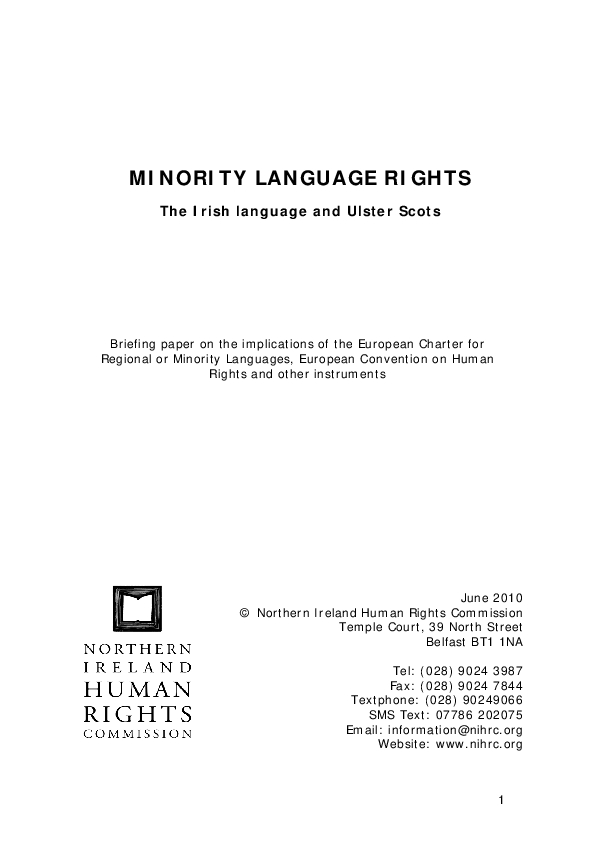Minority Language Rights
Historically indigenous languages across Europe and beyond had been suppressed by national or colonial projects of the powerful nation states. Such political projects were often monocultural and had seen ‘linguistic unity’ in their official language, and hence the development of a unilingual state, as a prerequisite to the dominance of their state-building or ‘civilising’ mission.
In addition to directly coercive measures, what followed was often a familiar pattern of, first, banning the indigenous language within state institutions such as public office and the courts, and, subsequently, other institutions into which the state had expanded, notably the education system. The post-Second World War settlement saw steps to stem such practices. However, this was largely limited to the inclusion of provisions to ensure that persons were not discriminated against on the basis of language in the enjoyment of other human rights.

Download Documents
Your browser is out-of-date!
Update your browser to view this website correctly. Update my browser now